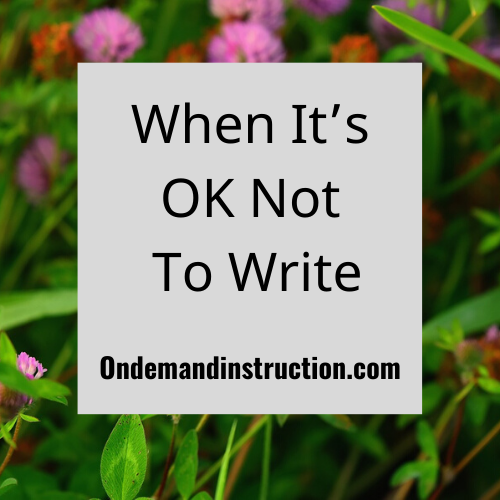
I think everyone would agree that 2020 could have gone better. The list of challenges that popped up during the year strained every aspect of our lives: personal, familial, professional.
Not only that but many creative people found their livelihoods yanked from beneath them as galleries closed, bookstores and libraries postponed events, and theaters went dark. The places we depend upon for creative connection shuttered. As we transitioned to connecting virtually, many people came to terms with the shifting balance that we had to give more and receive less.
So, how can writers move beyond a difficult year? Write about it.
We have known for decades that writing offers therapeutic benefits for people who make time to reflect on their experiences. When we write, all the grief and pain of our lives do not disappear as the ink dries, but the process of collecting our thoughts, feelings, and memories onto paper can lighten the burden. When we write about our experiences, the process can help us to make sense of them. In a similar way that talking through a situation with a friend can bring us some relief, so it goes with writing. Though writing may not offer the full effects of professional therapy, it can improve our relationships with the past. Success! Now check your email to confirm your subscription.
Too, when we write about our experiences, we can improve our understanding of events but we can also improve our memory and ability to remember. As we age, recalling the details of past events can be more challenging than when we were young. When we write about what happened, more details make themselves known. For example, I recently wrote up memories of a friend who passed, and while I was writing I was able to recall not just the details like what we were wearing on eventful days, but I also remembered more events as I wrote. In all, I ended up writing twice as much as I had originally planned.
Writing is good for you. It taps into your creative energy, gives you an outlet for your thoughts and feelings, and provides a process to make sense of the world around you. After surviving 2020, spend some time writing about your experiences. The outcome could be the foundation for a rich section of your memoir.
We all walked away with new lessons learned after 2020.
With the year behind us, now is an excellent opportunity to capture your memories while they are still fresh. As you write, consider how you can integrate lessons learned, revelation of self, and reflections on the events. These elements make for engaging memoir stories. When you share lessons learned, it allows your reader to understand the series of events in your life and how they unfolded. Revelation of self helps your reader to connect to you as a writer. And reflecting on the events gives you, the writer, opportunity to analyze the events in retrospect which can allow for greater analysis of what happened.
We made it through 2020 in one piece, so now it is time to put those stories together. Start by thinking of one event that happened in 2020 and write about that. Perhaps you will write about when you first realized that Covid was a pandemic. Perhaps you will write about the political division in communities. Or perhaps you will write about the adjustments you made to communicating with people virtually.
Start with one event and write about it. Then move onto another event. The writing can be very short; a page per story is plenty to get things started. Once you've written about the year behind you, keep going. The process of collecting your stories can take some time, but the memories tend to bubble to the surface as you are working. And the result can offer a treasure trove of memoir material. For memoir writing prompts, check out the book, Letters to the Future: Related Blog Posts
Comments are closed.
|
About the SiteWelcome, Writers! Archives
September 2023
|






 RSS Feed
RSS Feed